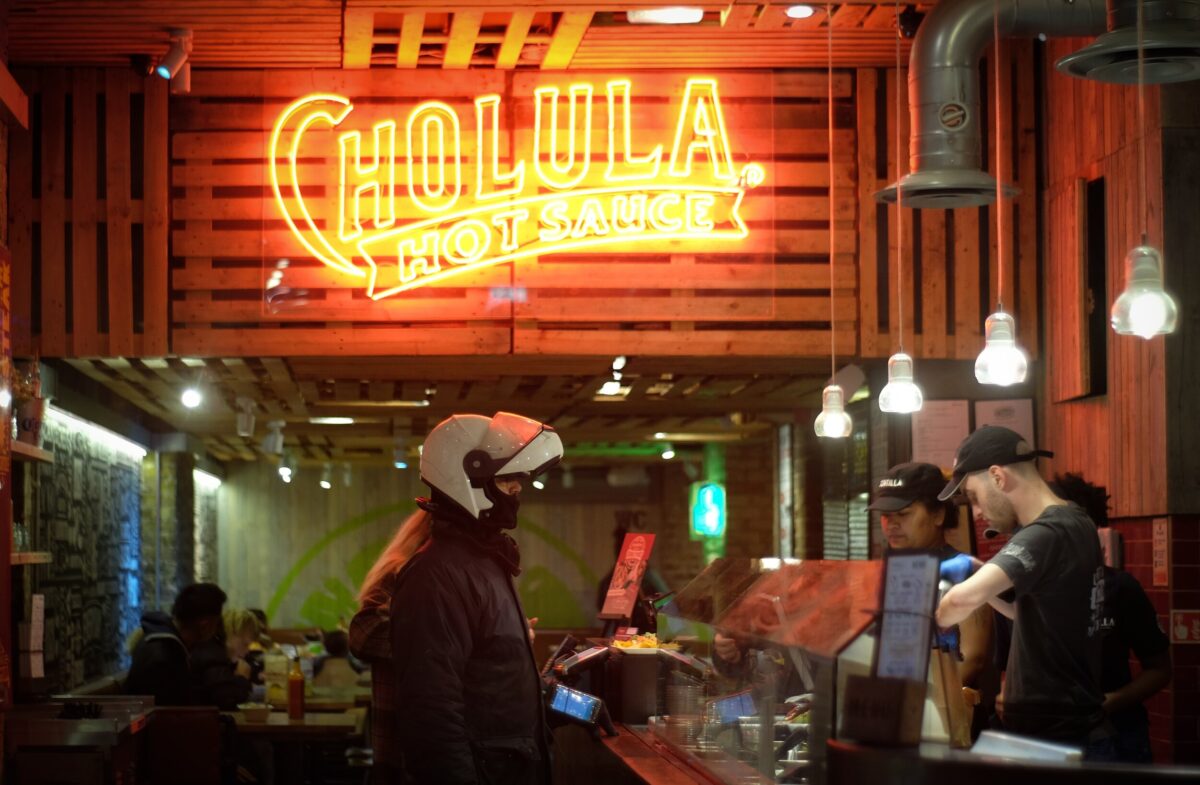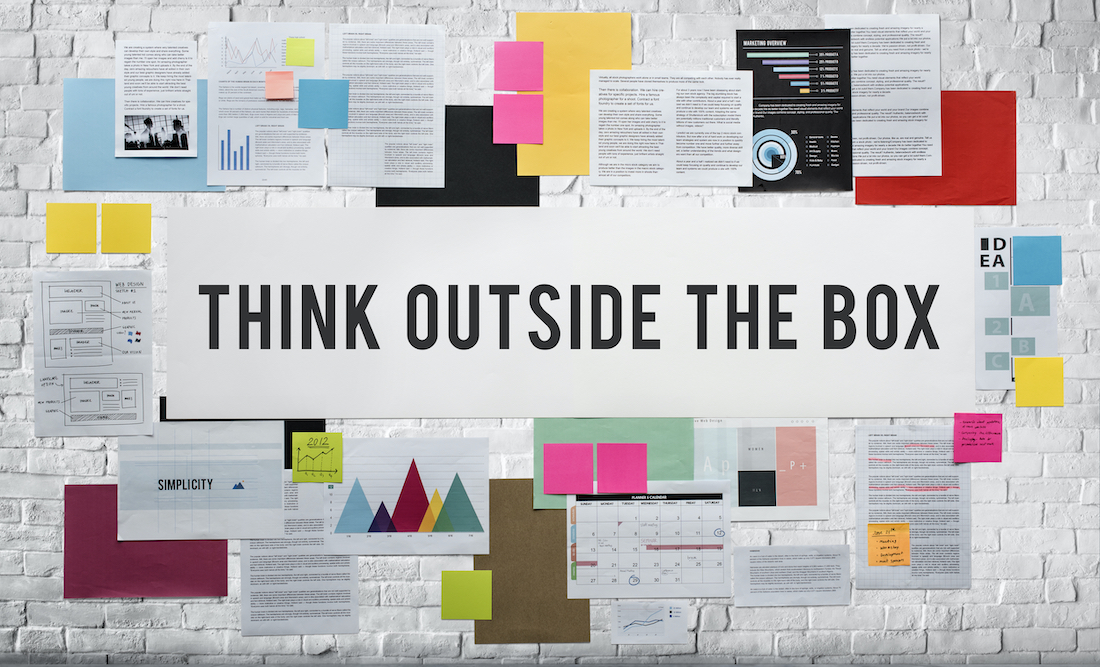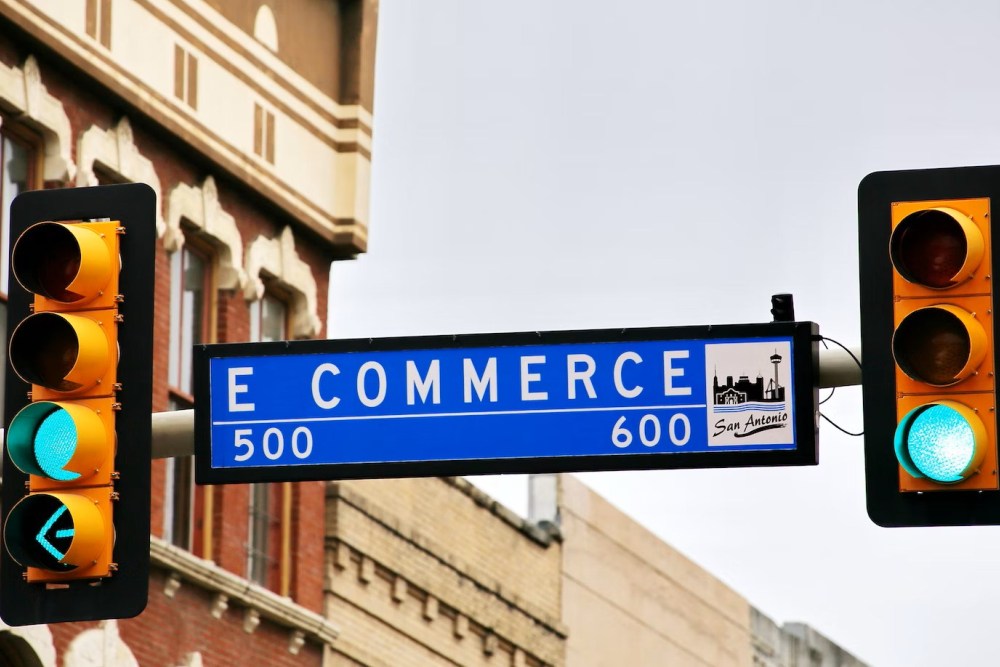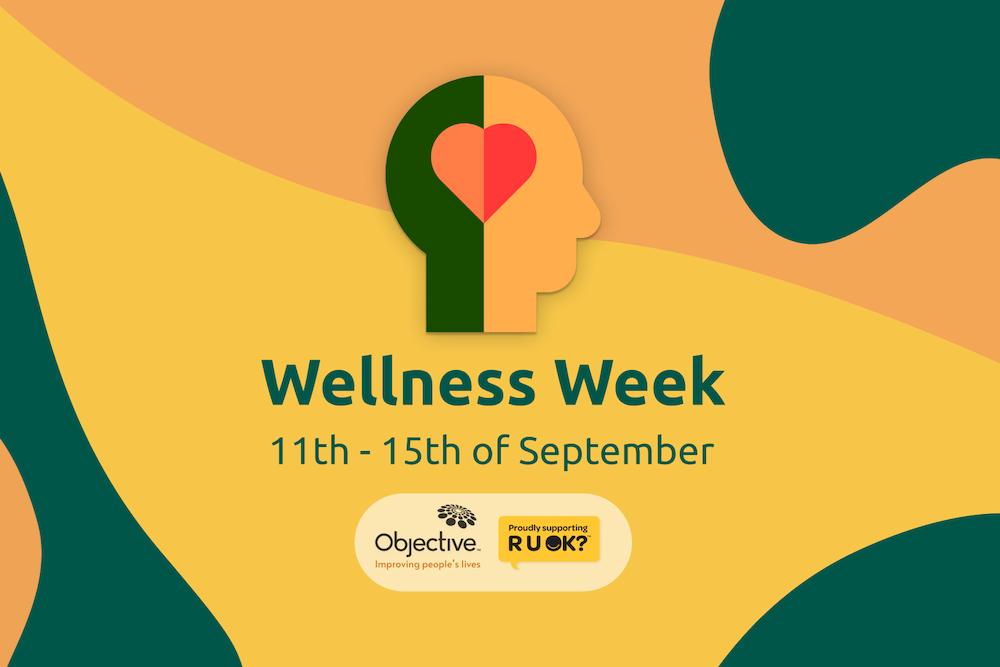We believe that the technology that we use on a day-to-day basis should help people to be mindful instead of adding unnecessarily to the ever increasing clutter in their lives. Bringing focus into people’s daily lives so that they can look after their own health and that of their family and friends.
People from all walks of life should be respected and feel in control, trusting in the interactions they are having and feeling secure about the ever increasing amount of data they are sharing. Their experiences should bring joy to their lives and not create frustration. Interactions online should consider everyone the product touches. While engendering a sense of belonging, support and compassionate action towards others. Not forgetting that the technology, and the people who use it, should have a positive impact on the environment whenever possible.
It’s no secret that Sydney has a breadth of cultural diversity which has led to a multitude of culinary offerings as well as the development of a prominent foodie culture. From entire suburbs being known for a particular kind of cuisine to centralized locations where you can find several different offerings on the same street alone, there is no shortage of variety on offer.
With such a sprawling urban landmass we don’t always have the time or luxury of traveling to our favorite food places (and let’s face it, sometimes we’re just too lazy to cook). This is where the online food delivery industry comes in to play, offering customers a convenient way to enjoy their favorite meals whenever they want, from the comfort of their own homes.
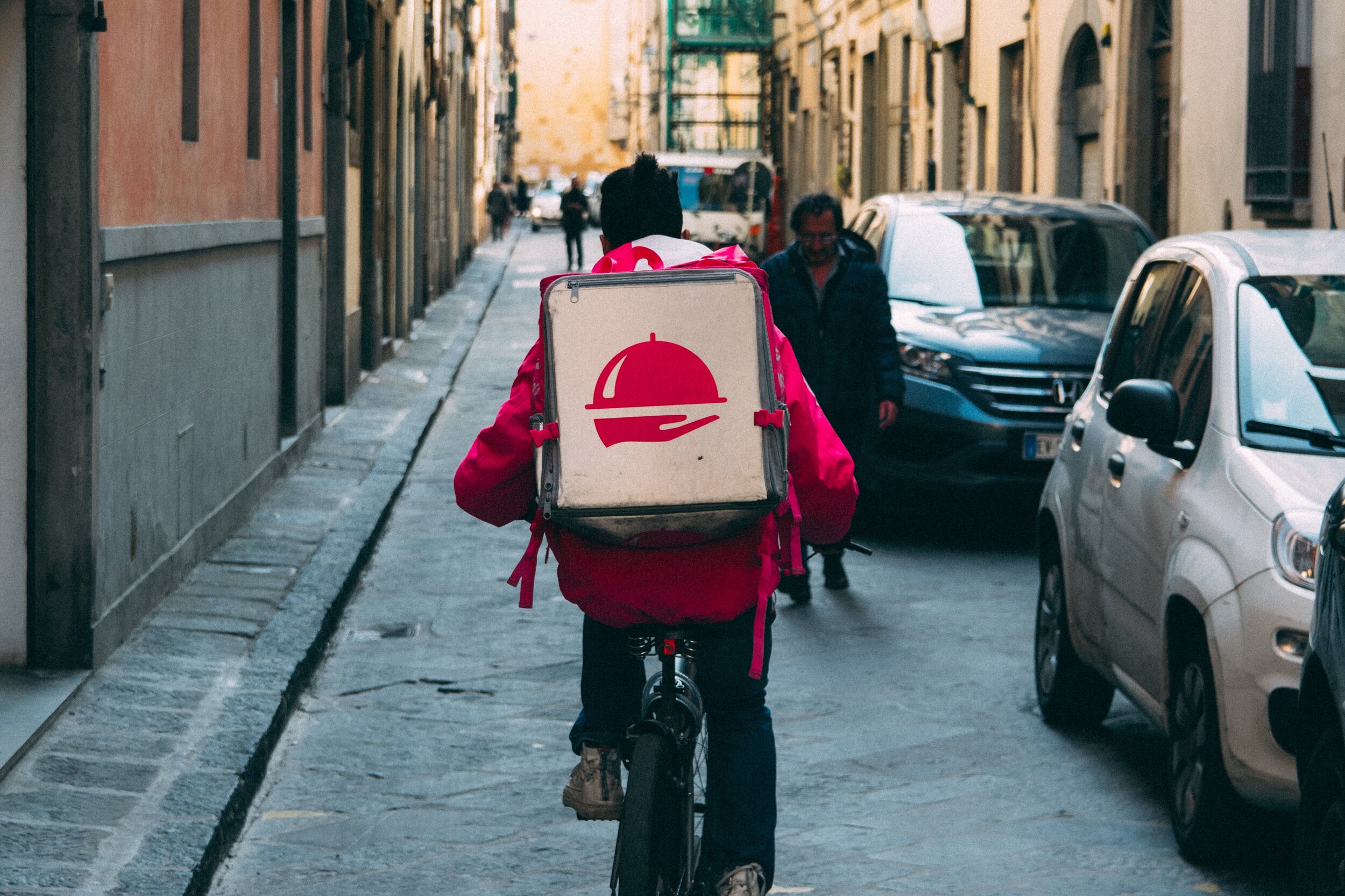
Food Delivery Apps – the current situation
As Australia moves into the third month of COVID lockdown the importance of online food delivery platforms is at an all time high.
The prospect of enjoying our favorite meals within the comfort of our own home, while limiting public exposure and avoiding the unfortunate likelihood of shortages at our local grocery store is too convenient to ignore.
With restaurants closed it’s no surprise that people have decided to bring the restaurant home to them in the form of food delivery.
Metrics for food delivery are up 258% compared to comparison weeks in the previous year. The importance of online food delivery during this current crisis has led the team at Objective Experience to review the current leading platforms for online food delivery in an effort to determine the best experience for customers during lockdown and address opportunities for improvement.
Such a comparison had been conducted many times before, but our aim isn’t to simply explore the usability and general heuristics of these platforms but to review these platforms against our new framework of Conscious User Experience (CUX).
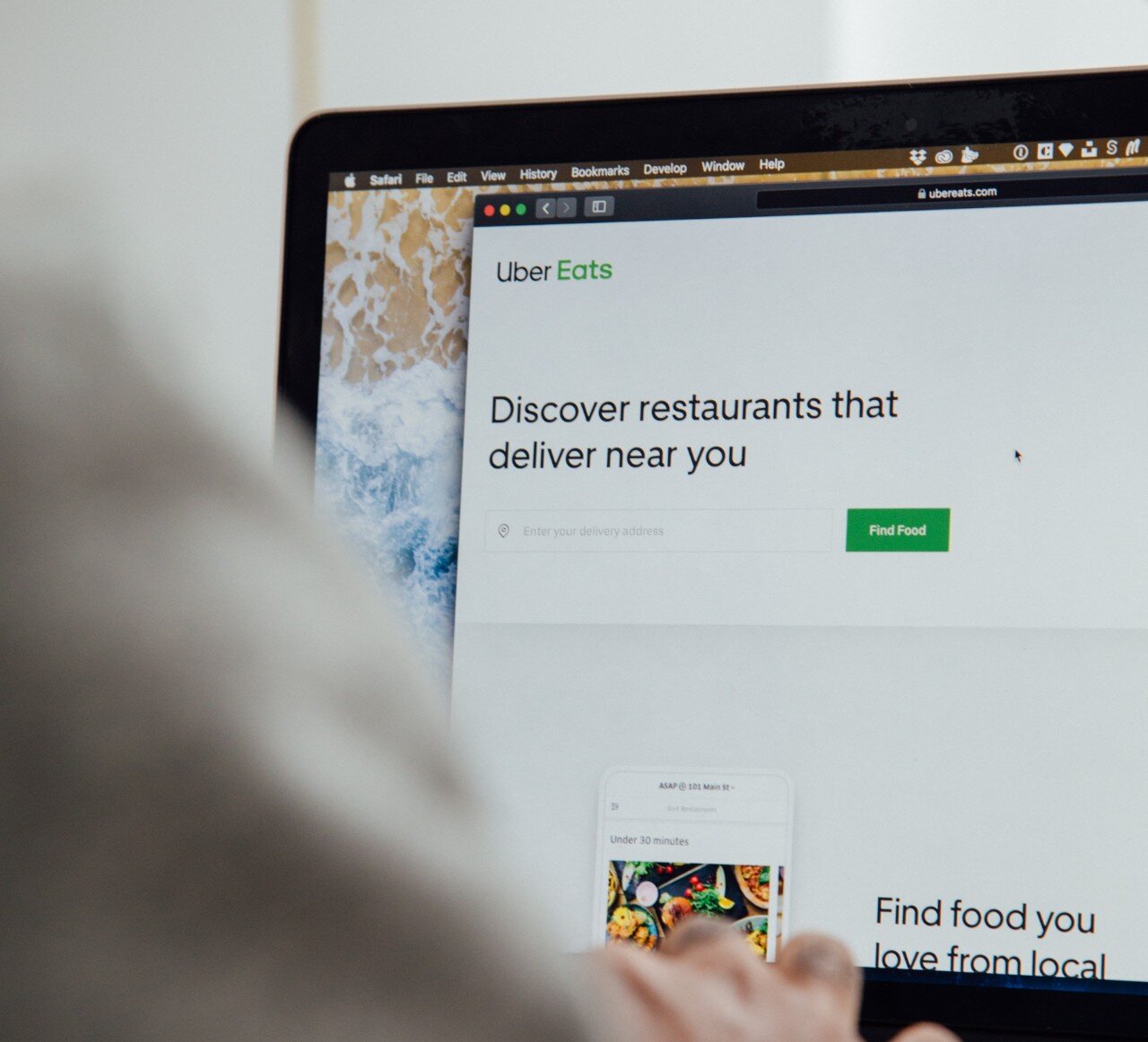
We used our new framework to carry out an ethical heuristic review of the main food delivery apps and came up with some interesting findings. There are some long standing issues with food delivery that have little to do with the app and are more related to the concept. Drivers/riders are employed as contractors and denied the same benefits of full time employees. Restaurants are losing a large slice of their profits to these services. Eating habits are more likely to be unhealthy than healthy using these apps.
Looking at the digital experience overall the rating was positive on the design and navigation of the app. As you would expect, a lot of research has gone into making the experience of using these apps a positive one with simple navigation and a pleasing design pattern. But if you looked at these apps through the lens of our framework there were some improvements that could be applied to all apps;
Presence
-
Allowing for specific food preferences outside of past orders would help tailor the experience. Additional UI options such as text size, color and or dark mode would be beneficial for those with visual impairments
-
There should be more transparency around data usage with a clear label on the legal page or during onboarding would help provide assurance that the information is being used sensibly.
-
Users need a clear way to opt out of the service and have their information deleted
Compassion
-
Delivery instructions need to be made more prominent and the user should be allowed to enter in specific details about the address when selecting the location on the map
-
Better onboarding / first time explanations for how to make an order including explanations on what would happen next before commiting to a decision. A help section need to be added or made more prominent, including a welcome guide would also be beneficial
-
Support options need to be available right from the get go. Drivers / restaurants and even customers need to be held more accountable for misconduct in order to create a better sense of safety for all parties involved
-
Help and support options need to be added or made more prominent from the welcome screen
Happiness
-
The process makes it easy to eliminate the pain point of cooking at increased financial and health disadvantages. Encouraging more altruistic options such as meal prep, bulk meals, DIY dinners would be more user focused and provide encouragement to still buy healthier meals in bulk via the app
Environment
-
Sustainable decisions need to be included or made more prominent. There should also be the option to specify these preferences by default rather than per order.
-
Choice needs to be narrowed down to prevent endless scrolling and the resultant time wasting from attempting to select a meal
As more companies turn to design as not just a nice to have but as an essential element of their chemistry then more power is shifted to designers, and with that power comes choices. Some of the design illuminati in the form of IDEO, Mike Monteiro and Alan Cooper has recently been reinforcing the importance of ethics in design and we hope to be able to encourage this momentum through the development of our framework.



